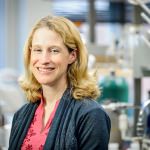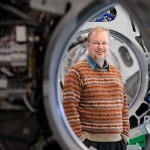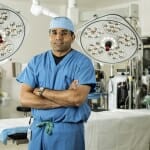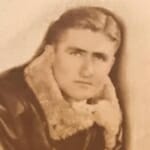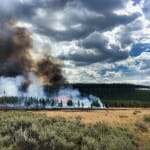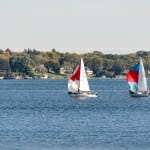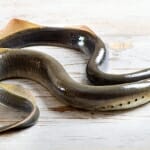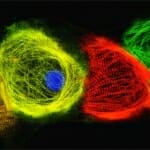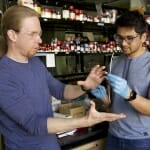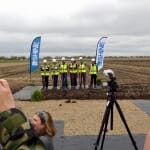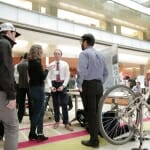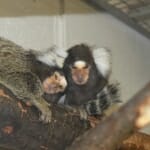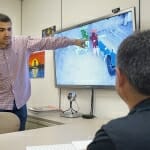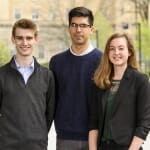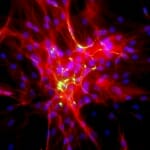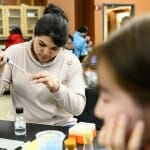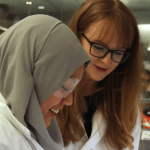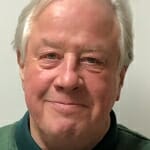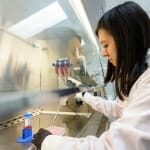Category Science & Technology
UW Changes Lives: Campus-born fertility company seeks to improve women’s health care, Wisconsin economy
What started as a side project in a UW–Madison laboratory is now a successful business that’s closer than ever to giving women a way to help overcome difficulties in conceiving a child.
What they learned: Four UW entrepreneurs focus on the big question
As UW–Madison continues to gain recognition for fueling Wisconsin’s high-tech economy, four experienced entrepreneurs with UW roots shared the cardinal lessons they learned.
New “traffic lights” warn Lake Michigan beachgoers of rip currents
The new warning system was spearheaded by Yuli Liu, a Ph.D. candidate in civil and environmental engineering. It's dubbed BLINK - Beach LIghts and Notifying Kiosk.
UW Changes Lives: Wisconsin professionals gain new opportunities while they work
From insurance to manufacturing, to higher education and health care, Wisconsin Evening and Executive MBA students come from wide-ranging industries to grow their skills and earn their degrees while they work.
A new way to wind the development clock of cardiac muscle cells
A study published in the journal Stem Cells describes a new and unexpected way to accelerate the maturation of induced pluripotent stem cells into cardiac muscle cells.
Double dipping: Dual-action ‘slippery’ catheter fights bacteria
A super-slippery coating being developed at a University of Wisconsin–Madison lab could benefit medical catheters, factory equipment, and even someday, oil tankers. The coating contains…
University spinoff breaks ground for essential medical supply; announces move into Europe
SHINE Medical, a company with deep roots at UW–Madison, broke ground on a factory in Janesville that will produce molybdenum 99 (moly-99), an isotope needed for scans that assess cardiovascular health, cancer and other conditions.
UW Changes Lives: Student entrepreneurs showcase innovative ideas at Transcend Innovation Competition
More than 30 teams of UW–Madison students have transformed from bright ideas to full-fledged businesses, which they pitched to a panel of expert judges at the annual Transcend Madison Competition.
New professor brings precision data to the dairy barn
The same technology that alerts a self-driving car that there’s a pedestrian in the crosswalk could also warn a dairy farmer that a calf is getting sick — even if that calf is mingled among dozens of healthy ones.
Three students named Goldwater Scholars for science excellence
All three recipients have conducted research as undergraduates and plan to pursue doctorates in their respective fields.
‘Bad guy’ fibrocytes could help rebuild damaged tissue
Could a blood cell type responsible for scarring and diseases such as pulmonary fibrosis be repurposed to help engineer healthy tissue? A new study by…
Microbiology capstone course plumbs life’s mysteries in the deep ocean
In a capstone research project, dozens of senior microbiology majors are coaxing their microscopic subjects back to life and dissecting their genetic information in hopes of illuminating how their harsh ecosystems function.
UW–Madison research team finds new ways to generate stem cells more efficiently
A new study published in Cell Reports by a team of researchers at the University of Wisconsin–Madison’s Wisconsin Institute for Discovery and School of Medicine and Public Health could improve the efficiency of creating induced pluripont stem cells.
Fettiplace named a Passano Fellow; 2nd major award for hearing researcher
Fettiplace, a professor of neuroscience at the UW School of Medicine and Public Health, won the award for showing how cochlear hair cells sense the tiny mechanical vibrations that sound produces in the inner ear.
UW Changes Lives: Building a biomanufacturing hotbed
To Bill Murphy and the other leaders of the Forward BIO Initiative, Wisconsin possesses all the elements to become a hub of biomanufacturing in the United States, the Midwest’s version of Boston or San Francisco in this rapidly expanding industry.

